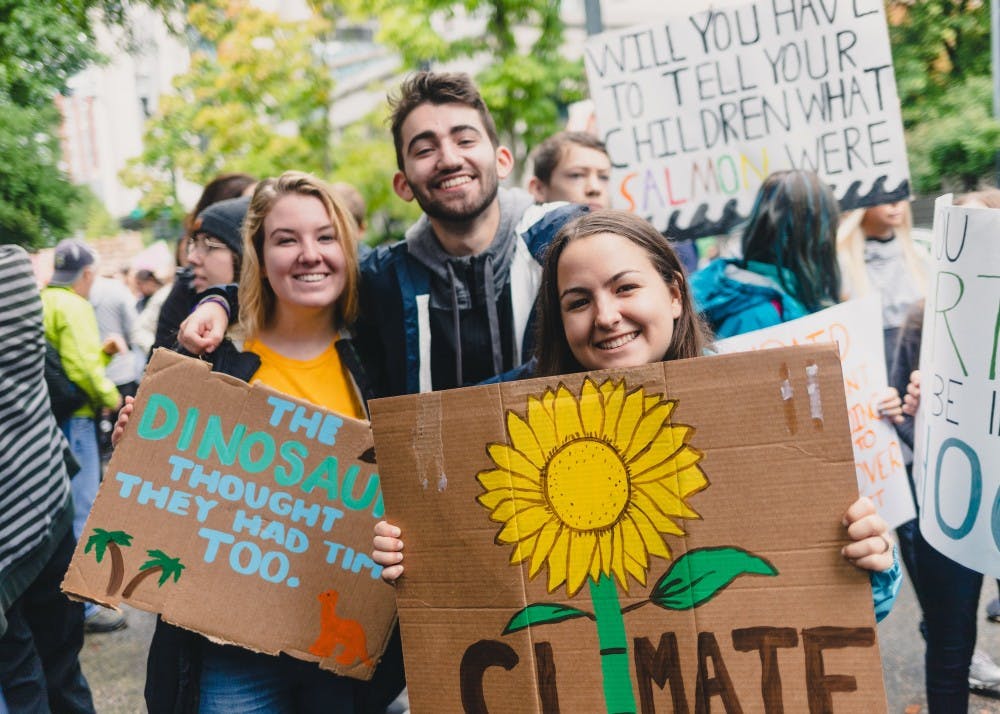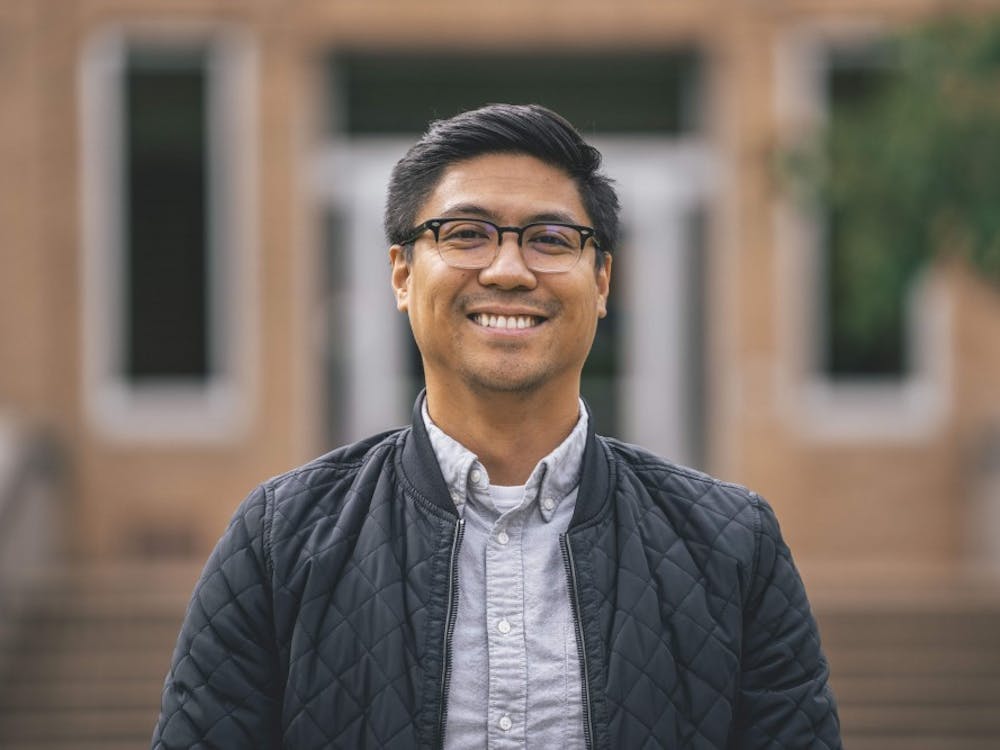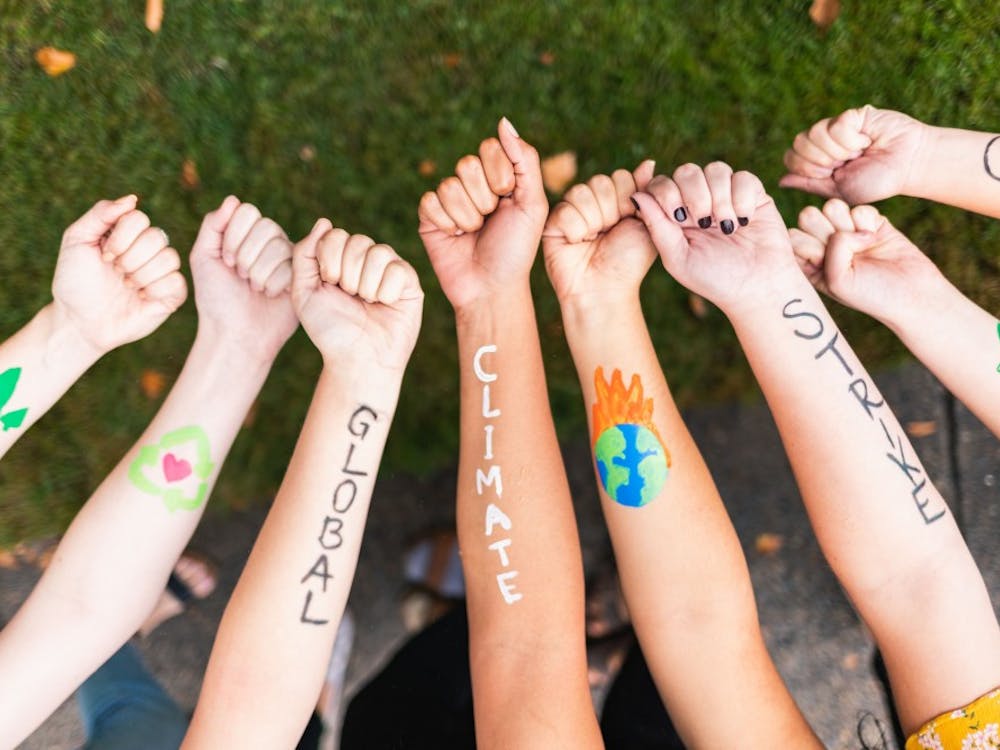On Friday, Sept. 20, UP students and professors packed into cars and buses set for downtown Portland to join the highly anticipated Global Climate Strike. About 6,000 people attended the Portland strike alone, but an estimated four million people participated in the strike across the world. UP community members joined strikers from cities like Melbourne, Paris, New York City and Los Angeles to demand 100% clean energy, keeping fossil fuels in the ground and helping those impacted by climate change.
On Sept. 20, 2019 citizens gathered in cities around the world to strike for the climate and demand action against climate change. UP students were among the thousands of people that attended Portland's climate strike and several shared their reactions to the event. Video by Jennifer Ng.
The Portland strike started at City Hall where there were different speakers, including the Pacific Climate Warriors. According to philosophy professor Andrew Eshleman, who was at the strike, the program was run mostly by high schoolers, which made the event especially moving. Everyone then marched across the Hawthorne Bridge to the Oregon Museum of Science and Industry (OMSI) where there was a climate strike festival.
Greta Thunberg, a 16-year-old Swedish activist, started this movement ahead of the 2019 U.N. Climate Action Summit, on Sept. 23. The summit called on world leaders to create realistic plans to stay in line with their sustainable development goals.
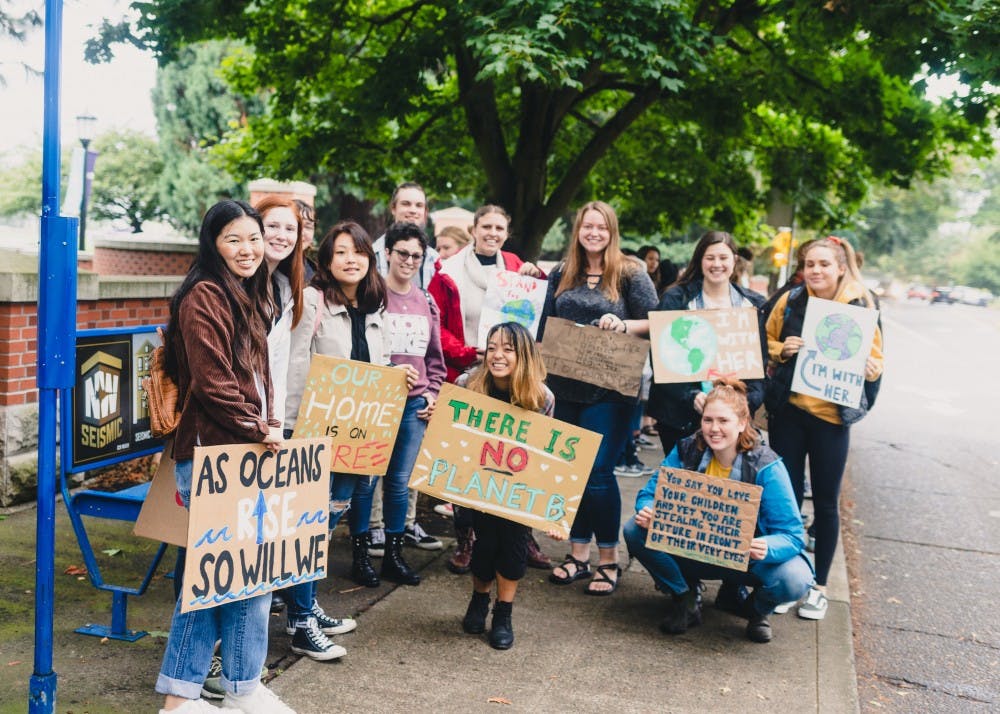
Members of the UP Ecology Club gathered to ride the bus to the Climate Strike together. They had a poster making session at their meeting on Wednesday.
Many children attended the strike as well, showing a deep concern for their future as climate change continues to cause devastation to many communities. This message was clear when a young girl on her father's shoulders held what Julia Goldman, a junior communications major, said was the most powerful sign at the strike: “Please don’t hurt my future.”
Other signs read: “Like the Oceans We Rise,” and “Our Farms, Our Forests, Our Future.”
Goldman went to the strike and had an emotional experience. Goldman is involved in social justice and was fascinated with the number of younger children at the strike.
“I’ve never been to a protest or a rally that had such a younger population, which I think says a lot,” Goldman said. “With climate change as daunting as it is, kids now have more awareness since it affects their future directly.”

UP students Phoebe Anderson, Madison Thibado, and Macey Schondel smile with their hand made signs at the Portland Climate Strike.
Justin Myers, a junior environmental ethics and policy major, also attended the strike. Myers said learning about the environment in all of his classes can be disheartening when considering all of the world’s issues, like the rising sea levels and scarcity of resources.
“Seeing all of the issues that we have can be very daunting, but it (the strike) definitely gave me a new perspective and some hope, seeing the mass amounts of people that were there to support the movement,” Myers said. “It made me feel like I had a purpose with what I was doing and that there can be a solution and that we can actually make a change.”
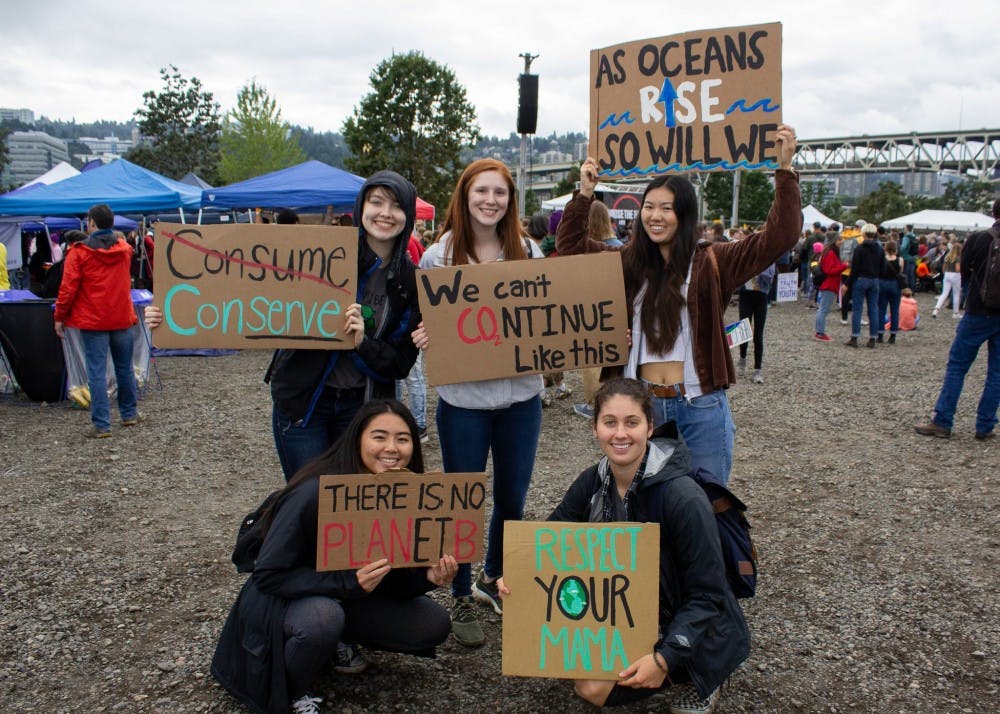
After the march, UP students gathered at the festival where there were food trucks, talks, and activities.
Here in Portland, many UP students missed class and some professors canceled classes so they could go to the strike. However, Goldman was upset that the whole campus didn’t drop everything to attend the marches.
“The march was the same day as “Demo Day,” and teachers still held exams, quizzes and just classes in general,” Goldman said. “This cause takes priority over any class or exam, or even free yerba mates at Demo Day.”
Fiona O'Brien is a reporter for The Beacon. She can be reached at obrienf21@up.edu.



